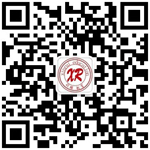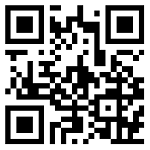提醒:点这里加小编微信(领取免费资料、获取最新资讯、解决考教师一切疑问!)
(12)listen to、hear的用法:两个词与听觉有关,listen to指“听”这一过程,hear指“听到”这一结果。如:Are you listening to me,Jim? Yes,I have heard your words.(吉姆,你在听我说吗?是的,你的话我全听见了)
(13)look、see、watch、read的用法:四个词均与眼睛有关,look指放眼去“看”(不管是否看得到),指“看”的过程;see指“看 见”这一结果,有时see还引申为“明白”,表示“看”时后面加“电影”等词;watch指专注的看,含有“注视、监视”之义,后面常跟“电视、比赛”等 词;read限制为看书面材料,译为“看、阅读”,后面跟“书、报纸、杂志”等词。如:What are you looking at?(你在看什么?)/ Please look at the blackboard. (请看黑板)/ Let me go to see the film, mum, will you? (妈妈,让我去看电影吧,好吗?)/ He won’t feel well until he finishes watching the football match. (要看完了足球赛他才会感觉好些)/ Reading gives us knowledge.(阅读给我们知识)
(14)hear、hear of、hear from、learn的用法: hear“听说”,后面可以跟名词、代词、从句表示听见的内容,hear of“听说”,后面跟人,指对某人有耳闻但没有见过面;hear from“收到……的来信”,后面加人;learn“听说、得知”,后面跟从句,含义与hear相似。如:I hear Mr. Green is coming to see us tonight. (我听说格林先生今晚要来看望我们)/ Have you ever heard of the man who once went to the Himalaya Mountains? (你是否听说过那个去过喜马拉雅山的人?)/ How often do you hear from your father? (隔多久你收到你父亲的信?)/ He learned the musician himself was in town.(他听说音乐家本人就在城里)
(15)speak、talk、say、tell的用法:四个词与“说”有关。speak“讲话、发言、演说”,是不及物动词,涉及人时要加介词 to,speak作及物动词时后面跟语言名称;talk“谈话、闲谈”,是不及物动词,涉及人时用介词with、to等,涉及事情时后面跟介词about 等;say 是及物动词,后面跟名词、代词、从句等,表示说的内容;tell是及物动词,后面首先要跟人,然后再跟从句或者介词短语等。如:Do you speak English? (你讲英语吗?)/ Who spoke at the meeting? (谁在会上发了言?)/ Our teacher is talking to Lin Tao’s parent. (我们的老师正在跟林涛的家长讲话)/ Can you say it in English? (你能用英语说出它吗?)/ Please tell me something about the strange flying object. (请跟我讲讲那个奇怪的飞行物的事情吧)
(16)be able to(do)、can的用法:can是情态动词,有许多含义,表示“可能、可以、会”等意思,只有现在式can和过去式could两种形式;be able to表示能力上“会”,有多种时态形式,to后面跟动词原形,有时可以与can/could互换。如:Can you speak English? (你会说英语吗?)/ He couldn’t(wasn’t able to) swim when he was 12. (他十二岁时不会游泳)
(17)there be、have的用法:两个词都可以译为“有”,但是,have表示的是“拥有”,主语必须是人或者物;there be表示“存在”的概念,主语在there be之后。如:How many brothers and sisters do you have? I have only one brother. (你有多少兄弟?我只有一个兄弟。)/ How many chairs and desks are there in their classroom? There is none. (他们教室里有多少张桌椅?一张也没有。)
[注解]there be sb./sth doing与there be sb./sth to do 有所不同:用doing表示一个正在发生的事情,而用to do 则表示一个滞后或迟于there be的动作。如: Look! There is a dog lying on the stairway. / Take your time. There is nothing for you to do tonight.
(18)borrow、lend、keep的用法:表示“借”的三个词,borrow“借进”、lend“出借”都是一次性动作,不可以和表示一段的时间 状语连用;keep“保存”用来表示借一段时间。如: I have lost the book I borrowed from my teacher. What can I do? (我丢掉了从老师那里借来的书)/ How long have you kept my dictionary,eh?For more than two months! (呃,我的字典你借了多久了?两个多月了!)
(19)bring、take、carry、send、lift的用法:bring指从远处“拿来”;take指从面前“拿走”;carry指一般的搬运,不涉及方向;send主要指“送、派遣、寄”;lift指把东西由低向高“提起、拎起”。例略。
(20)hope、wish的用法:两个词都表示“希望”,但是,hope表达有把握或信心实现的事情,后面直接跟动词不定式或者宾语从句,不可以跟动名 词或作宾语补足语的不定式;wish表达实现的可能性不大的事情,后面跟名词、宾语从句(用过去时)或者作宾语补足语的不定式。如:We all hope to see him very soon. (我们全都希望尽快见到他)/ I hope it will be fine tomorrow so that we can go out. (我希望明天天好,这样我们就能出去了。)/ How I wish it was not raining at the moment!(我多么希望此刻不在下雨!)(事实上天正在下雨)
(21)take、spend、pay、cost的用法:
spend的宾语通常是金钱或时间,句型:sb.+(spend)+时间/金钱+on sth / (in) doing sth. ;
take的主语通常是事情,句型:sth./It + (take)+sb.+时间+to do… 。(如果是动作则常用it作形式主语将动词不定式后移);
cost的宾语通常是时间、金钱、力气,句型:sth. +(cost)+sb.+时间/金钱/力气. ;
pay的宾语通常是金钱,句型:sb.+(pay)+金钱+for+事物.
如:She spent the whole night reading the novel. (她花了一个晚上看那本小说)/ This job will take me two days.=It will take me two days to do the job. (做这件事情要花我两天的时间)/ How much does a house like this cost? (像这样的房子要花多少钱?)/ I paid him twenty dollars for the book.. (我花了20元从他那儿买了书)
(22)begin、start的用法:begin在大多数情况下可以替代start,(反义词是end),后面接不定式或动名词时区别不大,但是 start还可以表示“开始、出发、启动”,反义词是stop;某事停止后再重新开始一般用start.如:When did you begin/start to learn English? (你什么时候开始学英语的?)/ They started getting in the crops after the rain stopped. (雨停后他们开始收割庄稼) / This time he could not start his car. (这次他没法启动他的汽车)
(23)arrive in/at、reach、get to的用法:arrive是不及物动词,到达具体地点时后面加介词at,到达一个大的地方(国家、城市)时后面加介词in,arrive后面可以直接跟地 点副词here/there/home等;get表示“到达”时是不及物动词,涉及地点(无论大小)时后面加to,get后面可以直接跟地点副词here 等;reach是及物动词,后面直接跟地点名词。如:He arrived in San Francisco last Sunday. (上个星期天他抵达旧金山)/ How did you get there in the night? (你是怎样在夜间到达那里的?)/ We hurried all the way and reached the station just five minutes before the train left. (我们一路狂奔在火车启动前5分钟到达车站)
(24)be made of、be made from、be made into、be made in、be made by、be made for的区别:be made of指从制成品中可以看得出原材料,而be made from则指从制成品中看不出原材料,口语中都可以换成be made out of。 be made into表示“被制成……”,be made in表达被制造的地点,be made by表达制造的人,be made for表达被制造的目的。如:This kind of paper is made from bamboo. (这种纸是由竹子生产的)/ The desk is made of wood and metal. (桌子是铁和木头打的)/ A lot of paper has been made into paper birds. (许多纸被折叠成了小鸟)/ Computers are made in these cities. (计算机是在这几个城市制造的)/ This kite was made by Uncle Wang. (这个风筝是王叔叔做的)/ A big bag was made for me to hold my waste things.(一只大包做好了让我装废物)
(25)be used for、be used to、used to、get used to的区别:be used for + 名词/代词或动名词, be used to + 动词原形,表示两个短语意思相近,表示“用于…”。 used to + 动词原形,表示“过去常常”,否定式可以是“didn’t use to”也可以是“usedn’t to”;get/be used to + 动名词,表示“习惯于….”。如:A knife can be used for cutting things.(刀可以用来割东西)/ A knife can be used to cut things.(刀可以用来割东西)/ He used to borrow novels from the library when he was at school. (他上学时常常在图书馆借书)/ He is used to getting up early in the morning. (他习惯早起)
(26)beat,win与lose: beat (打败),后面跟“人”,而win(赢得),后面跟“比赛、竞赛”等。如:Who won at last? (最后谁赢了?)/ Class Three beat us 5-0. (三班以5∶0打败了我们)/ I am sure to win the match. (我一定能赢得比赛)
而lose则表示“输了”,常用句型:lose sth. to sb. 如:Unluckily we lost the match to Class Three. (不幸的是我们比赛输给了三班)
(27)grow、plant、keep的区别:plant着重讲“栽、种植”这个动作,grow则指种植以后的“栽培”、“管理”,而keep则主要指 “喂养”、“赡养”一个人或者动物。如 :He grew vegetables in his garden. (他在园子里种菜)/ I planted ten trees last year, but four of them died. (去年我栽了10棵树,但是死了4棵)/ Old women enjoy keeping cats or dogs to kill the time. (老年的妇女喜欢养猫养狗打发时间)
(28)fall 、drop的区别:fall指东西由高处向下坠落,不及物动词;也可以作连系动词,意思是“变得,进入某种状态”。drop表示物体由高处往低处落下,不 及物动词;或让物体落向低处,及物动词。如:The man fell off the tractor and hurt himself. (那个人从拖拉机上摔下来跌伤了)/ Soon after they touched the pillows they fell (系动词) fast asleep. (他们头挨枕头不久就睡着了)/ He felt as if he had to drop maths.(他觉得似乎要放弃数学)/ He dropped a letter into the mail-box.(他向邮箱里丢了一封信)
(29)join、join in、take part in的区别:join多指参加组织、团体、党派等,后面跟人时表示和某人一起参加某项活动;join in指参加某项游戏或活动;take part in多指参加群众性的活动、运动、会议等。如:He joined the army in 2001.(他2001年参军)/ They joined me in congratulating you.(他们和我一起向你祝贺)/ Do join us in the game.(千万参加我们的比赛) / He took an active part in the students’ movement in the 1940s.(在二十世纪40年代他积极参加学生运动)
提醒:点这里加小编微信(领取免费资料、获取最新资讯、解决考教师一切疑问!)









